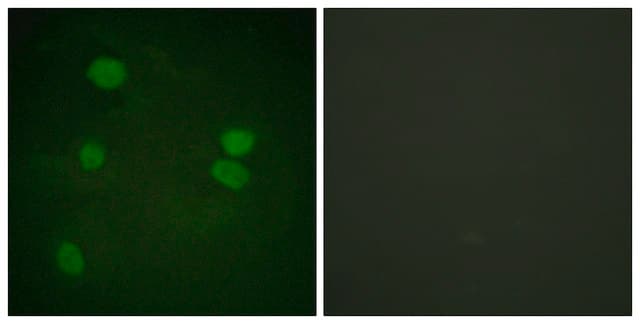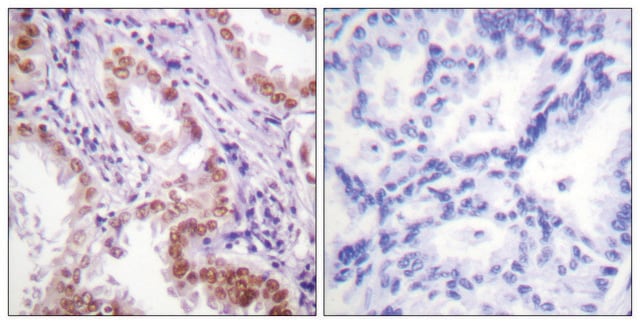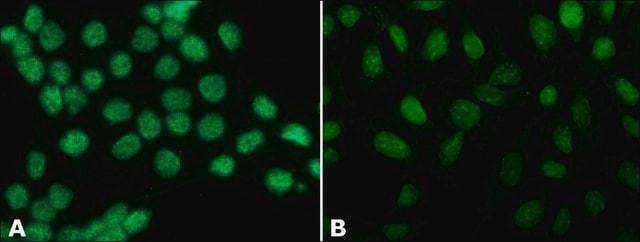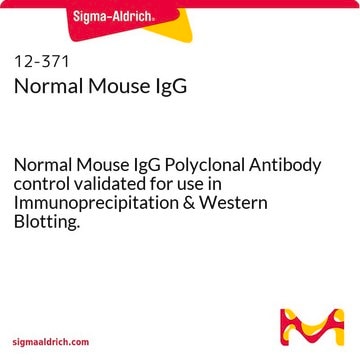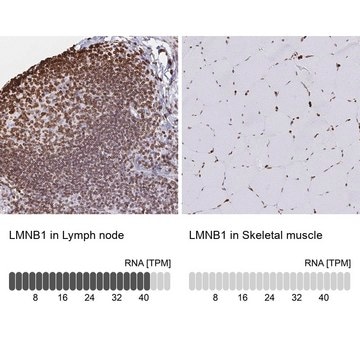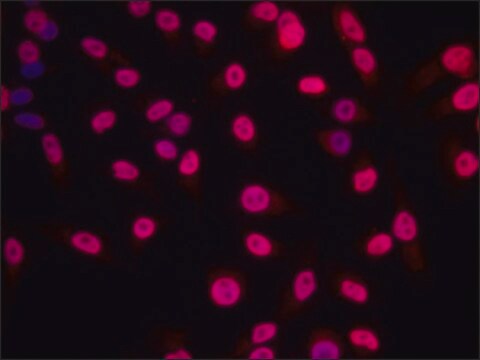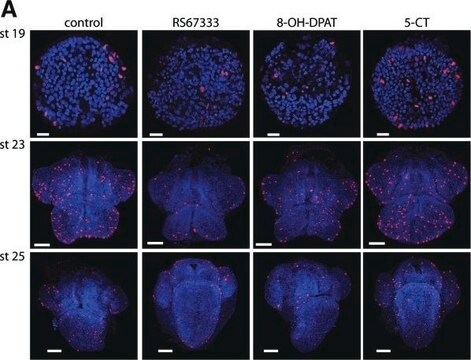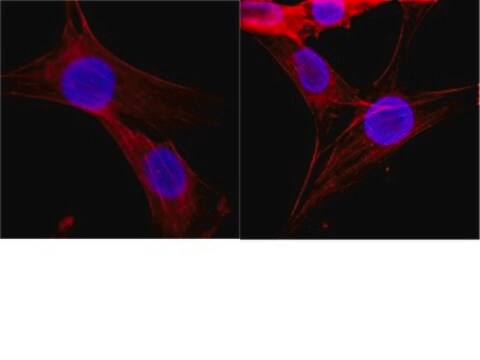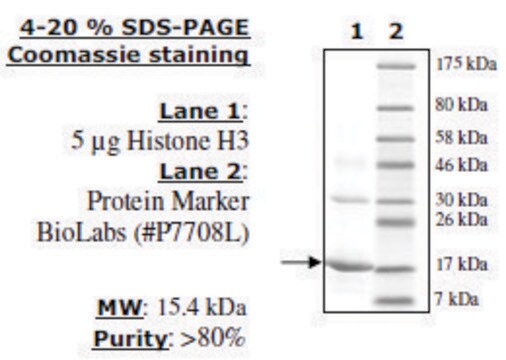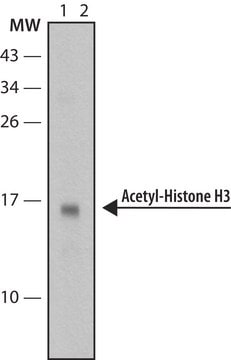H0164
Anti-Histone H3 antibody produced in rabbit

IgG fraction of antiserum, buffered aqueous solution
Synonym(s):
Anti H3 Antibody, Histone H3 Antibody, Histone H3 Antibody - Anti-Histone H3 antibody produced in rabbit
About This Item
WB
western blot: 1:2,500-1:5,000 using whole cell extract of the rat pheochromocytoma PC12 cell line
western blot: 1:5,000-1:10,000 using whole cell extract of the A431 human epidermoid carcinoma cell line or a whole cell extract of the mouse fibroblast NIH3T3 cell line
Recommended Products
biological source
rabbit
Quality Level
conjugate
unconjugated
antibody form
IgG fraction of antiserum
antibody product type
primary antibodies
clone
polyclonal
form
buffered aqueous solution
mol wt
antigen 17 kDa
species reactivity
chicken, mouse, plant, Drosophila, rat, human, Xenopus
packaging
antibody small pack of 25 μL
enhanced validation
independent
Learn more about Antibody Enhanced Validation
technique(s)
indirect immunofluorescence: 1:250-1:500 using mouse fibroblast NIH3T3 cells
western blot: 1:2,500-1:5,000 using whole cell extract of the rat pheochromocytoma PC12 cell line
western blot: 1:5,000-1:10,000 using whole cell extract of the A431 human epidermoid carcinoma cell line or a whole cell extract of the mouse fibroblast NIH3T3 cell line
UniProt accession no.
shipped in
dry ice
storage temp.
−20°C
target post-translational modification
unmodified
Gene Information
human ... H3F3A(3020) , H3F3B(3021) , HIST1H3A(8350) , HIST1H3B(8358) , HIST1H3C(8352) , HIST1H3D(8351) , HIST1H3E(8353) , HIST1H3F(8968) , HIST1H3G(8355) , HIST1H3H(8357) , HIST1H3I(8354) , HIST1H3J(8356) , HIST2H3A(333932) , HIST2H3C(126961) , HIST3H3(8290)
mouse ... H3f3a(15078) , H3f3b(15081) , Hist1h3a(360198) , Hist1h3b(319150) , Hist1h3c(319148) , Hist1h3d(319149) , Hist1h3e(319151) , Hist1h3f(260423) , Hist1h3g(97908) , Hist1h3h(319152) , Hist1h3i(319153) , Hist2h3b(319154) , Hist2h3c1(15077) , Hist2h3c2(97114)
rat ... H3f3b(117056)
Related Categories
General description
Phosphorylation of H3, mainly on Ser10 and Ser28, is localized to a small fraction of highly acetylated H3 and occurs primarily in response to mitogenic and stress stimuli. Phosphorylation of Ser10 is considered a crucial event for the onset of mitosis. It is tightly correlated with chromosome condensation during both mitosis and meiosis. Histone methylation, like acetylation, is a complex, dynamic process involved in a number of processes, including transcriptional regulation, chromatin condensation, mitosis ad heterochromatin assembly. Conserved lysine residues in the N-terminal tail domains of histone H3, Lys4, Lys9, and Lys27 are the preferred sites of methylation. Histone lysine residues can be mono-, di-, and tri-methylated at different heterochromatic subdomains, adding further complexity to the regulation of chromatin structure.
Specificity
Immunogen
Application
Physical form
Disclaimer
Not finding the right product?
Try our Product Selector Tool.
related product
Storage Class Code
12 - Non Combustible Liquids
WGK
WGK 2
Flash Point(F)
Not applicable
Flash Point(C)
Not applicable
Personal Protective Equipment
Choose from one of the most recent versions:
Certificates of Analysis (COA)
Don't see the Right Version?
If you require a particular version, you can look up a specific certificate by the Lot or Batch number.
Already Own This Product?
Find documentation for the products that you have recently purchased in the Document Library.
Customers Also Viewed
Our team of scientists has experience in all areas of research including Life Science, Material Science, Chemical Synthesis, Chromatography, Analytical and many others.
Contact Technical Service

